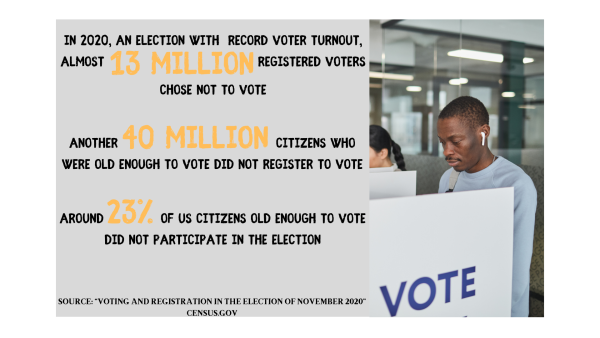Congress and its Secret Trades
Congress members have been taking advantage of their insider on the stock market.
October 14, 2022
*The opinions expressed within the content are solely the author’s and do not reflect the opinions and beliefs of the website or its affiliates.*
Stock trading within Congress has been legal since the existence of stocks as a manner of investment. However, the act of owning stocks in companies while actively regulating them poses a clear conflict of interest. This conflict of interest has been a significant reason why Congress has done so little to stop insider trading from occurring; members of Congress have a vested interest in it continuing.
Insider trading is also considered unethical because of the unfair advantage it provides to a Congress member in the market. Congress members gain confidential information that helps members invest more effectively than the general public simply because of their position. Many Congress members trade stocks in the millions of dollars. Thus, questions have been raised about how much the knowledge gained from their work impacts their trading of stocks. While it is almost impossible to know what goes on in someone’s head while they are trading, we can form a pretty accurate idea by looking at the money they make from stock trading.
There have been meager attempts to limit insider trading within our government. The STOCK Act of 2012 was an attempt to make it seem like Congress was finally addressing the issue of trading. It was passed 417-2 in the House and 97-3 in the Senate, yet it was passed by members who trade stocks on insider knowledge to this day. 10 years later and stock trading is still alive, well and lucrative for our elected officials. The act itself was named the Stop Trading on Congressional Knowledge (STOCK) Act, but it does not live up to this name.
This act mandates that Congress members must file reports about stock trades valued at more than $1000, 30-45 days after the trade was exchanged. However, in 2020 it was found that multiple Congress members had broken this simple provision and had been fined. Yet, the fine was so small that it did not impose serious consequences on the Congress members. The act does include a provision that bans stock trading on non-public knowledge and many Congress members have committed this offense, but the act failed to indict them for insider trading even though news agencies have reported that up to 54 members of Congress have violated the provision.
Furthermore, during the 2020 COVID-19 pandemic, several members of Congress traded stocks under congressional knowledge, but the STOCK Act never went into effect. The STOCK Act was an inadequate regulation. This act was a failure, yet there have been no laws passed that truly prevent Congress members from insider trading.
Along with insider trading, there is also a clear conflict of interest when it comes to our elected official’s trading. Many lawmakers and their families have profited immensely from their investments. The average Congressperson is a millionaire, which casts doubt on their integrity and sincere interest in American governance. We have such weak control over our government official’s investments that many of them have blatantly traded on the knowledge they gained through their position. Furthermore, they do this before the general public knows the information.
On January 24, 2020, the Senate Committees on Health and Foreign Relations held a closed meeting with senators to brief them on the potentially massive impact of the COVID-19 outbreak. Congress members knew that this pandemic would impact their stock value. Immediately after the briefing, Senator Kelly Loeffler, a Republican from Georgia, and her NYSE chairman husband, Jeffrey Sprecher, sold between $1,275,000 and $3,100,000 in 27 different transactions and purchased stock in Citrix Systems, a cloud computing company. Republican senator David Perdue also made 112 quick transactions to sell $825,000 in other stocks and buy $1,800,000 in Citrix Systems. The value of Citrix Systems’ stock rose following the public knowledge of the COVID outbreak. In another case, Dianne Feinstein, a Democrat from California, sold between $1,500,000 and $6,000,000 in Allogene Technologies following the knowledge she gained from the meeting, right before a small fall in the price of the stock. Furthermore, Democrat Nancy Pelosi’s husband, Paul Pelosi, has outperformed the S&P 500, an index of the top 500 stock performances, by 14.3%, a historic feat likely only achievable by someone who has insider knowledge. Many members of our legislative branch are insider trading, including many that voted for the STOCK Act.
Many members of Congress sit on committees related to the stocks that they trade in, which conflicts with their values. These conflicting interests can critically impact legislation, changing the financial state of Americans. Republican Senator John Boozman sits as the ranking member of the Senate Agricultural, Nutrition, and Forestry Committee. However, Boozman also owns stock in Mondelez International, a food company that is affected by the legislation he writes and recommends. Ro Khanna, a Democrat, owns stock in Lockheed Martin, a weapons manufacturer, while simultaneously serving on the Senate Armed Services Committee. In total around 4,000 trades have been made between 2018 and 2021 that pose a conflict of interest between lawmakers’ private finances and public position.
There is bipartisan support for stock trading within our government. A significant number of our government’s problems could be addressed by ending this clear conflict of interest. However, the lawmakers themselves must be the ones to end their stock trading and few have committed themselves to this.















